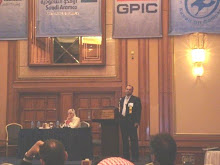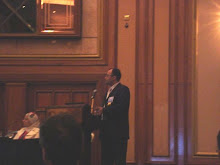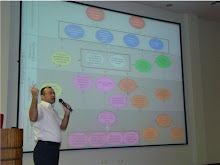Starting with the definition, Knowledge Management includes a variety of practices aiming to identify, establish, represent, store and distribute knowledge that will afterwards be used for performing, awareness and learning within one organization and among different organisations। In many organisations, KM is embedded in IT or HRM (Vail III, 1999)
Organisational maturity varies with different knowledge areas। This reflects on KM by forming a vicious cycle where less maturity means less formalized processes and less organisational learning which in turn decreases organisational ability to improve maturity in that knowledge area. Thus organisations can avoid this by emphasising on capturing knowledge and organisational learning as a baseline.
Of equal importance to capturing knowledge throughout project lifecycle is the knowledge transfer। This starts with on-the-job peer discussions, formal apprenticeship, corporate libraries, professional training and mentoring programs then extends to IT based knowledge bases, expert systems and knowledge repositories.
I see that organisational learning and knowledge management are closely related, where both encounter “using the past to help us predict the future”. However, knowledge management gows a further step ahead of organisational learning by greater focus on specific knowledge assets and the development and cultivation of the channels through which knowledge flows. To promote KM, different organizations have tried various knowledge capture incentives, including making content submission mandatory and incorporating rewards into performance measurement plan.
A strategy to apply KM is to develop processes that enable us to successfully shift from “Tacit” to “Explicit” knowledge. That is, from subconscious internalized knowledge to formal, explicit knowledge that can be stored as an organisational asset and communicated among departments, units and projects (Monaka et al, 1995).
Knowledge Management provides a significant role in assisting PM’s decisions throughout the project phases when mature organisations provide systems, repositories, and corporate processes to encourage and formalize knowledge activities। PM’s access and capture knowledge via the following triple stage process:
First: During initiation and planning, learn best practice and lessons learned from similar projects undertaken earlier
Second: During implementation, tracking and control, to seek advice on issues or roadblocks encountered and how to handle them
Third: During project Closure, to seek advice on post project reviews and activities.
What if there was no previous advice of similar cases in the organisational database? An alternative option PM’s can rely on in KM is to access experts on an ad hoc basis with their knowledge requests। Some advantageous benefits of this option are:
- Experts provide quick, relevant and precise advice,
- They factor in all aspects of the situation and respond accordingly
Regards,
Samer
About The Author

- Eng. Samer el Barakeh, MPM, PMP
- Samer el Barakeh was born in Lebanon, 1973. He completed his Bachelor in Engineering-CCE at Beirut Arab University-Lebanon in 1996 with honours. Samer was granted Masters Degree in Project Management (MPM) from the University of Sydney-Australia with honours. He also gained the Project Management Professional (PMP) Credential from The Project Management Institute (PMI). Samer is a member of the Order of Architects and Engineers in Lebanon since 1996, The Project Management Institute (PMI), Arabian Gulf Chapter (AGC-PMI) and Lebanon Chapter-PMI. During his 13 years of professional experience in Lebanon, Australia and Saudi Arabia, Samer held many positions among them: Telecommunication Site Engineer, Site Manager, Low Current Service Head, and he is currently Senior Systems Analyst at the General Project Construction Division. Samer is a Project Management Consultant and Training Provider for universal organizations like Business Management Consultants (USA) www.bmc-online.com and PMCTQuest (Canada) www.pmctquest.com Samer is a Registered Training Provider for Project Management Professional (PMP), and he provides training in Program Management, Portfolio Management,PMO...
Select a topic to view content
- A comparison between PMBOK and Prince2 Methodologies and reflection on case study examples (1)
- ABC to Avoid Project Failure (1)
- Business Case and Quantitative Benefits (1)
- Do we need more 'Planners' ? (1)
- Fasilitator in Partnering-A Coincise Shot (1)
- How to Ensure Stratgic Alignment of Our Projects? (1)
- Individual Dissimilarity and Team Work (1)
- Knowledge Management (1)
- Maturity Models-The Pros and Cons (1)
- Organizational Advantages from Partnering (1)
- Organizational Maturity: Lets Head Upwards... (1)
- Organizational Strategy and Project Alignement (1)
- Practical Solutions 1 of 6: Introduce RMMM (1)
- Practical Solutions 2 of 6: Facilitate Change to Perk up Maturity (1)
- Practical Solutions 3 of 6: Leverage Organisational Culture Barrier (1)
- Practical Solutions 4 of 6: Organisational Cultural Alignment (1)
- Practical Solutions 5 of 6: Defining a Unified Decision Making Tool (1)
- Practical Solutions 6 of 6: Understanding The Paradox of Control (1)
- Programme Management to Implement Strategy (1)
- Project Management and Construction Management (1)
- Project Managers relocated before Proper Project Closure and Learning Lessons (1)
- Project Managers' Power (1)
- Strategic Planning (1)
- Successful Project Management Office-PMO (1)
- System Thinking: Archetypes at Work... (1)
- The Partnering Change Process (1)
- The Upper Hand… Leadership skills or Processes? (1)
- Thinking about change needed? Maybe you should be more ‘worried’ about how to make it real (1)
- Vision Mission and Objectives What and Why? (1)
- What is meant by Portfolio and Programme Management (1)
- Why Partnering in Organizations? (1)
May 27, 2007
Knowledge Management
Posted by
Eng. Samer el Barakeh, MPM, PMP
at
7:07 PM
![]()
![]()
Labels: Knowledge Management
Subscribe to:
Post Comments (Atom)
Followers
All Titles
A comparison between PMBOK and Prince2 Methodologies and reflection on case study examples
ABC to Avoid Project Failure
Business Case and Quantitative Benefits
Do we need more 'Planners' ?
Fasilitator in Partnering-A Coincise Shot
How to Ensure Stratgic Alignment of Our Projects?
Individual Dissimilarity and Team Work
Knowledge Management
Maturity Models-The Pros and Cons
Organizational Advantages from Partnering
Organizational Maturity: Lets Head Upwards...
Organizational Strategy and Project Alignement
Practical Solutions 1 of 6: Introduce RMMM
Practical Solutions 2 of 6: Facilitate Change to Perk up Maturity
Practical Solutions 3 of 6: Leverage Organisational Culture Barrier
Practical Solutions 4 of 6: Organisational Cultural Alignment
Practical Solutions 5 of 6: Defining a Unified Decision Making Tool
Practical Solutions 6 of 6: Understanding The Paradox of Control
Programme Management to Implement Strategy
Project Management and Construction Management
Project Managers relocated before Proper Project Closure and Learning Lessons
Project Managers' Power
Strategic Planning
Successful Project Management Office-PMO
System Thinking: Archetypes at Work...
The Partnering Change Process
The Upper Hand… Leadership skills or Processes?
Thinking about change needed? Maybe you should be more ‘worried’ about how to make it real
Vision Mission and Objectives What and Why?
What is meant by Portfolio and Programme Management
Why Partnering in Organizations?
















Dear Samer,
ReplyDeleteI liked the article, mainly the link between knowledge management and project management.
I have only on comment, I am not sure about the author (Monaka et al, 1995), I believe you meant Nonaka?
Anyway, I liked your blog, I believe I will spend some time navigating it.
Ayham